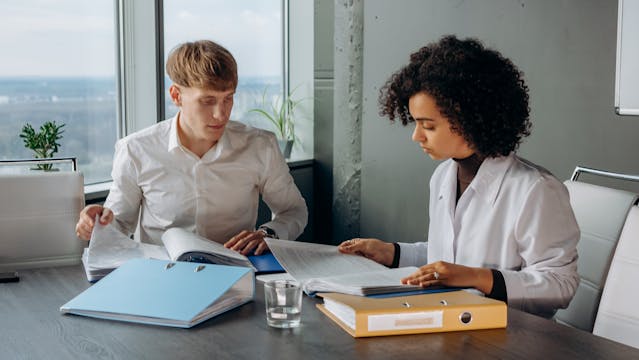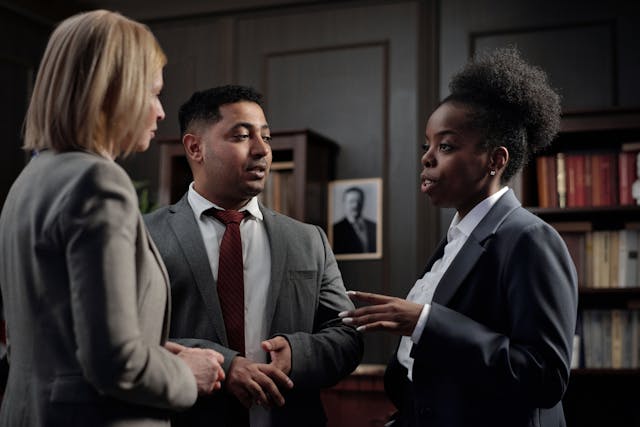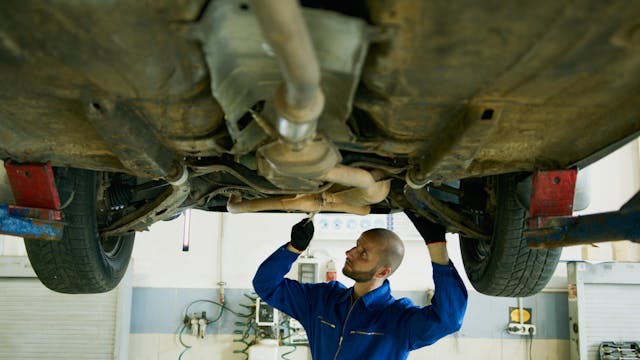- Securing your well-being and gathering information
- Understanding your car insurance coverage
- Filing a claim and negotiating a settlement
- Finding reputable auto repair shops
- Seeking medical attention
- When to consult a car accident attorney
Being involved in a car accident can be a frightening and disorienting experience. In the blink of an eye, a routine drive can turn into a chaotic scene of damaged vehicles, potential injuries, and overwhelming emotions. Beyond the immediate shock and adrenaline surge, the aftermath of a car accident presents a complex web of considerations. Dealing with insurance companies, navigating car repairs, and potentially even legal issues can add significant stress to an already challenging situation.
This comprehensive guide is designed to empower you, the car owner, with the knowledge and tools to navigate the post-accident process effectively. We’ll delve into crucial steps to take immediately after the accident, such as ensuring everyone’s safety, gathering essential information, and documenting the scene. We’ll explore the intricacies of car insurance coverage, from understanding different types of plans to navigating the claims process and negotiating a fair settlement.
Whether your car requires minor repairs or extensive collision work, this guide will equip you with strategies for finding reputable local auto repair shops. We’ll also address the importance of seeking medical attention after an accident, even if you feel uninjured initially. The guide will explore the advantages of car accident clinics compared to emergency rooms, depending on the severity of your injuries.
Finally, we’ll provide valuable insights into legal considerations following a car accident. Learn when consulting a car accident attorney is advisable, understand your rights and responsibilities after the incident, and gain clarity on navigating situations involving drunk driving laws. By equipping yourself with the right knowledge, you can transform a potentially overwhelming experience into a manageable process
Securing Your Well-being After a Car Accident
Staying Calm and Assessing the Situation
The immediate aftermath of a car accident is critical. First and foremost, ensure your safety and the safety of others involved. Check yourself and your passengers for injuries. If anyone is injured, call emergency services immediately. If the accident is minor and no injuries are apparent, prioritize moving your vehicle off the road to avoid further traffic congestion.
Gathering Information and Documentation
While waiting for emergency services or exchanging information with the other driver, gather crucial details for your insurance claim. Here’s what you need and actionable tips for obtaining it:
- The other driver’s information: Name, contact details, and insurance provider with policy number.
- Actionable Tip: Ask to see their driver’s license and insurance card. Write down the information clearly and double-check for accuracy.
- Witness information: If there are witnesses, note their contact details and a brief description of what they saw.
- Actionable Tip: Politely ask witnesses if they’d be willing to provide a written statement detailing their observations of the accident.
- Scene details: Take pictures of the damage to all vehicles involved, including any surrounding property damage and skid marks.
- Actionable Tip: Use your smartphone camera to capture multiple photos from various angles. Include close-up shots of the damage and wider shots that establish the scene layout.
- Police report: If the police are called, obtain a copy of the police report for your insurance company.
- Actionable Tip: Request a copy of the police report at the scene or ask the officer how to obtain a copy later.
Understanding Your Car Insurance Coverage
Car insurance plans vary depending on your provider and the level of coverage you choose. It’s crucial to understand your specific plan details before filing a claim. Common types of coverage include:
- Liability Insurance: This covers property damage and bodily injury caused to others in an accident you are deemed at fault for.
- Collision Coverage: This covers damage to your own vehicle regardless of who is at fault.
- Comprehensive Coverage: This covers damage to your vehicle caused by events other than collisions, such as theft, vandalism, or natural disasters.
Actionable Tip: Review your car insurance policy thoroughly. If you’re unsure about your coverage details, contact your insurance company for clarification. Consider obtaining quotes from other local auto insurance providers to ensure you have the right coverage at a competitive price.
The Claims Process: Working with Your Insurance Company
Filing an Insurance Claim

Once you’ve gathered the necessary information, contact your insurance company to file a claim. Be prepared to provide details about the accident, including the date, time, location, and a description of what transpired. Here are some actionable tips for a smooth claim filing process:
- Review your policy details beforehand: Having a clear understanding of your coverage limits and deductibles will help manage expectations and ensure you ask the right questions. While filing a claim, you might discover there are aspects you can improve upon. Consider researching and comparing insurance quotes from other local auto insurance providers to see if you can find a plan with better coverage at a competitive price in the future.
- Be honest and factual: Provide a clear and concise account of the accident without embellishment or assigning blame.
- Keep detailed records: Maintain copies of all communication with your insurance company, including emails, phone call logs, and any paperwork exchanged.
By following these steps, you’ll be well-prepared to initiate the claims process with your insurance company. Remember, this is where your car insurance plan comes into play, so having a clear understanding of your coverage is essential.
Understanding the Claims Process
The claims process can involve an adjuster inspecting your vehicle and potentially requesting additional documentation. Be honest and cooperative throughout the process. Keep records of all communication and documents exchanged with your insurance company.
Negotiating Your Settlement

Your insurance company will offer a settlement amount to cover the repairs or replace your vehicle (depending on the extent of the damage). If you feel the initial offer is insufficient, consider negotiating. In complex situations, involving significant damage, injuries, or unclear fault, consulting a car accident attorney can be beneficial. An attorney can advocate for your best interests and ensure you receive fair compensation.
Statistic: According to a 2023 study by the Insurance Information Institute, the average cost of a car accident claim in the United States is $3,900. However, this number can vary significantly depending on the severity of the accident and the extent of damage.
Actionable Tip: Don’t accept the first settlement offer without understanding the full extent of the damage and potential repair costs. Research local auto repairs shop to obtain estimates for repairs before finalizing your claim with the insurance company.
Car Repairs and Collision Services
Finding Reputable Local Auto Repair Shops

Once you’ve received your insurance payout or finalized your repair arrangements with your insurance company, it’s time to choose a repair shop. Here are some tips for finding a reputable local auto repairs shop:
- Check online reviews and ratings: Utilize platforms like Google My Business, Yelp, and the Better Business Bureau to read customer reviews and assess repair shop ratings.
- Seek recommendations from friends, family, or trusted mechanics: Personal recommendations can be a valuable source of information. Ask people you trust for their experiences with local auto repair shops.
- Verify certifications and specialization: Ensure the shop is licensed and certified to perform the repairs your vehicle needs. For collision damage, look for shops specializing in collision repair services.
- Get written estimates before authorizing repairs: Don’t rely solely on verbal quotes. Obtain written estimates that detail the repairs needed, the parts required, and the estimated labor costs.
The Repair Process
If your car is undrivable after the accident, towing becomes necessary. Here’s what you need to know and some actionable steps to take:
- Review your insurance coverage: Many insurance plans include towing coverage. Check your policy details to see if towing is covered and what the limits are (distance, number of tows).
- Contact your insurance company: If your insurance covers towing, contact your insurance company to arrange for a tow truck. They will likely have a network of approved towing providers.
- Gather information from the tow truck driver: Before authorizing the tow, get the driver’s name, company information, and a written estimate of the towing cost.
- Choose a reputable tow truck company: If your insurance doesn’t cover towing or you prefer a specific company, ensure they are licensed and insured.
- Consider the final repair destination: If possible, choose a tow truck company that can deliver your vehicle directly to your chosen local auto repair shop. This can save you time and hassle in coordinating transportation later.
Seeking Medical Attention After a Car Accident
Even if you feel okay immediately after the accident, it’s crucial to seek medical attention. Some injuries, like whiplash, might not manifest symptoms right away. Getting a medical evaluation can ensure any potential injuries are documented and treated promptly.
Car Accident Clinics vs. Emergency Rooms
Depending on the severity of your injuries, you can choose between a car accident clinic or an emergency room:
- Emergency Room: For life-threatening injuries or severe bleeding, seek immediate emergency care.
- Car Accident Clinics: Car accident clinics specialize in treating accident-related injuries, such as whiplash, soft tissue damage, and sprains. They often offer flexible appointment times and potentially shorter wait times compared to emergency rooms.
Legal Considerations After a Car Accident
When to Consult an Accident Attorney
While not every car accident requires legal representation, there are situations where consulting a car accident attorney is advisable:
- Serious injuries: If you or someone else has sustained significant injuries in the accident, an attorney can help you navigate the complexities of personal injury claims and ensure you receive fair compensation for medical bills, lost wages, and pain and suffering.
- Unclear fault: If determining fault for the accident is complex or disputed, an attorney can investigate the accident scene, gather evidence, and represent your interests effectively.
- Drunk driving accidents: If the accident involved a drunk driver, legal representation is crucial. An attorney can navigate the legal process specific to drunk driving law and ensure you receive the maximum compensation you deserve.
Actionable Tip: Schedule a consultation with a car accident attorney to discuss your specific situation. Many attorneys offer free initial consultations to assess your case and determine if legal representation is necessary.
Understanding Your Rights and Responsibilities
It’s important to understand your rights and responsibilities after a car accident. Familiarize yourself with local traffic laws and reporting requirements. Avoid admitting fault at the scene or on social media. Be truthful and cooperative with law enforcement and insurance companies.
Staying Prepared and Moving Forward
While a car accident can disrupt your life and cause emotional distress, knowledge is power. By familiarizing yourself with the key steps outlined in this guide, you can navigate the aftermath with greater confidence and minimize the long-term impact of the accident. Understanding your insurance coverage ensures you receive fair compensation for repairs or a replacement vehicle. Prioritizing your health by seeking medical attention protects your well-being and documents any potential injuries. Consulting an accident injury attorney when necessary safeguards your rights and ensures you receive maximum compensation, especially in complex situations.
Remember, staying calm, informed, and taking decisive action are critical throughout the post-accident process. This guide serves as a roadmap to empower you to handle unexpected challenges and move forward with a sense of control. By following these steps and remaining proactive, you can efficiently resolve car accident-related issues and get back to your life with minimal disruption.
FAQs
- What should I do first after a car accident?
- Check for injuries and ensure everyone’s safety. Call emergency services if needed.
- Gather information from the other driver and any witnesses.
- Take pictures of the scene and damage.
- How long do I have to file a car insurance claim?
- Time limits for filing claims vary by state. It’s best to contact your insurance company as soon as possible after the accident.
- Should I get a lawyer after a car accident?
- Consider consulting a car accident attorney if you have sustained serious injuries, the fault is unclear, or the accident involved a drunk driver.
People Also Ask
- Q: I might miss work due to my car accident. Will I get fired?
- A: This depends on your employment contract and local laws. It’s best to check your contract and consult your HR department to understand your rights and potential options.
- Q: What happens if the other driver doesn’t have insurance?
- A: Many car insurance plans offer uninsured motorist coverage. This coverage can help compensate you for repairs or injuries if the at-fault driver lacks insurance. Actionable Tip: Review your insurance policy details to see if you have uninsured motorist coverage. If not, consider adding it to your plan for future protection.
- Q: How can I prevent car accidents from happening to me?
- A: As a car owner, you can take proactive steps to minimize your risk of accidents. Here are some tips:
- Always follow traffic laws and be a courteous driver.
- Avoid distractions while driving, such as using your phone or eating.
- Maintain your vehicle properly with regular servicing and repairs.
- Stay alert and focused on the road, especially during long journeys or bad weather conditions.
- A: As a car owner, you can take proactive steps to minimize your risk of accidents. Here are some tips:
